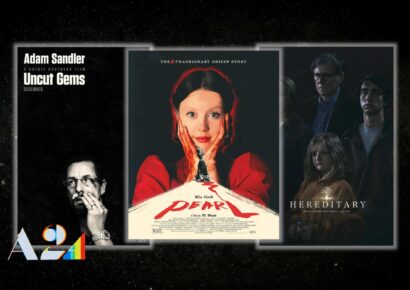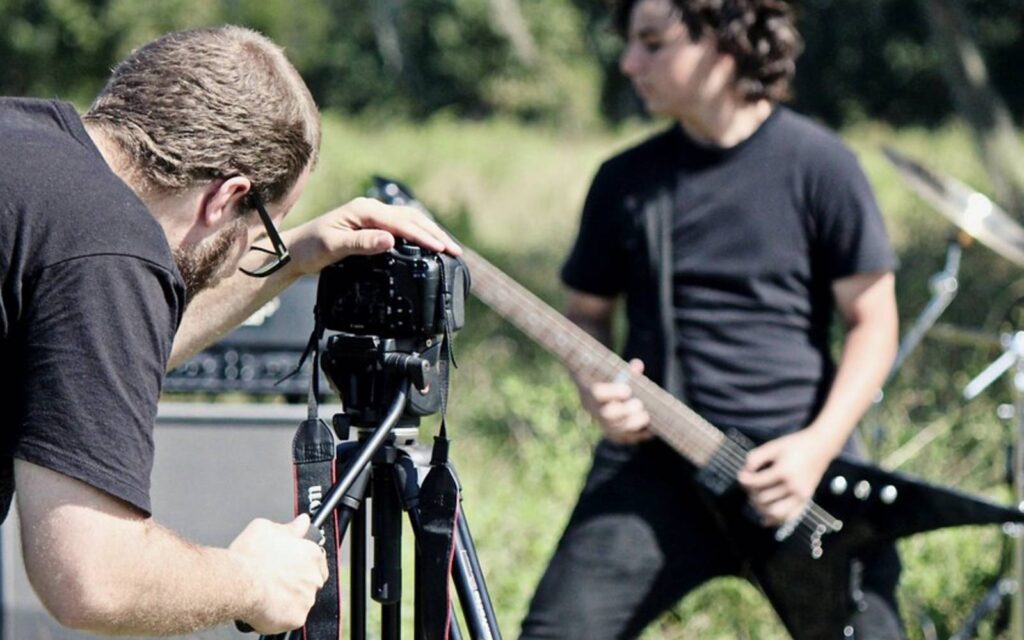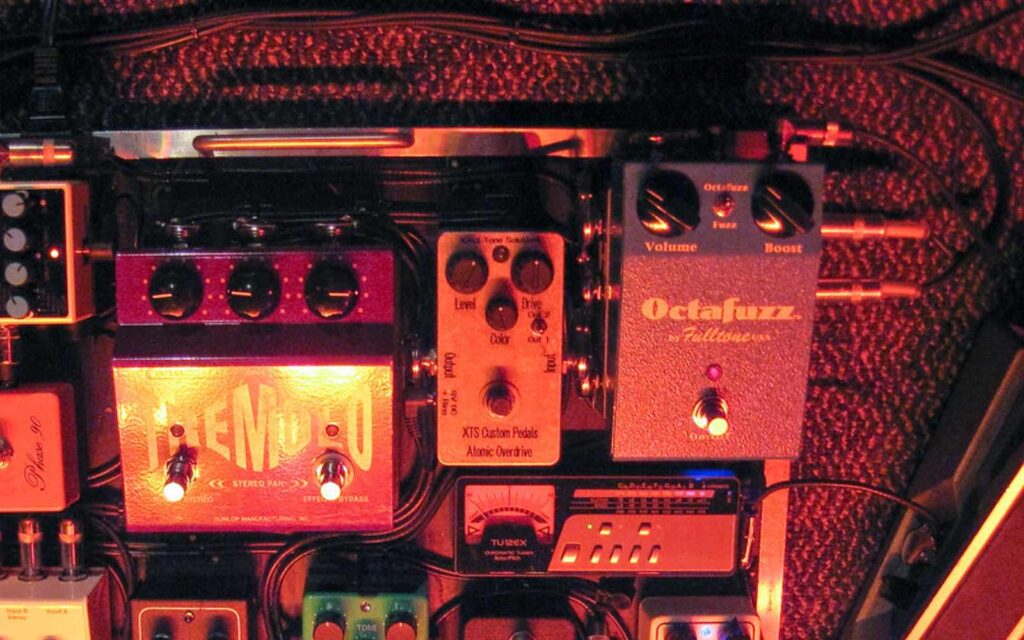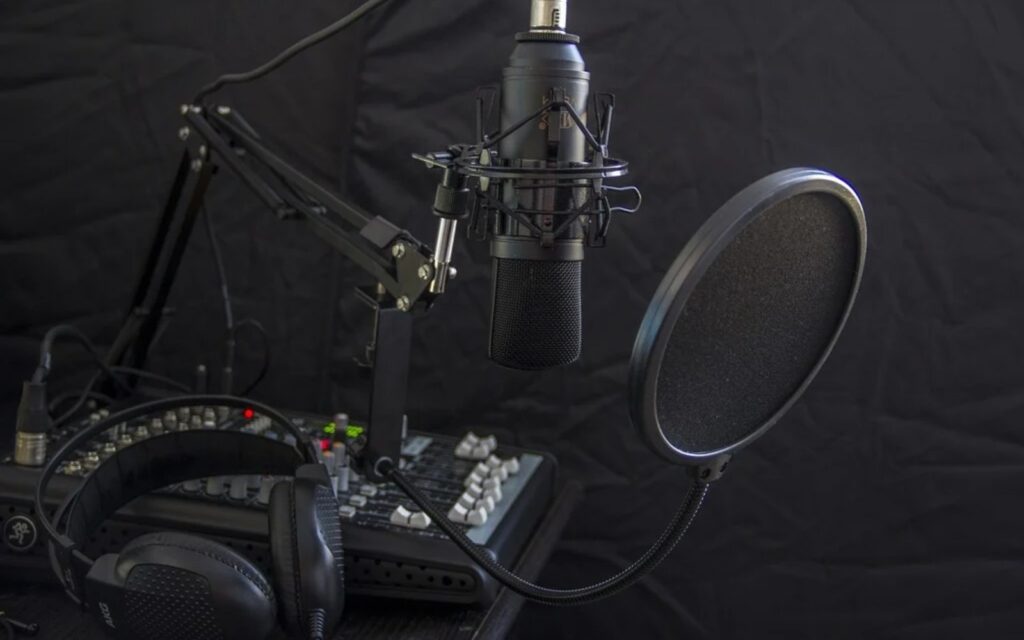New Years resolutions can feel overwhelming, while also being easy to drop once they start to fall apart. Our progress isn’t always linear, unlike the highlight reels we see of our favourite producers, music makers and engineers that we follow on social media.
Breaking down the purpose of a New Years resolution, we’re ultimately trying to get better at something, and small chunks of progress are easier to manage than huge, overarching goals. Five and ten year plans can be great to set your sights on the future – but what about all the milestones between now and then? The new year has just begun and it’s not too late to set realistic and achievable goals to have you making progress throughout the year. Here’s five tips!
Read all our latest features and gear columns here.
1. Make music every day
Practice makes perfect, and producing, writing, recording and mixing music is no different. While working with clients is great experience, you need a base level of skill in order to impress the clients once you win them. This speaks to the old adage that you can’t get a job without experience and you can’t get experience without a job.
To start your practice, endeavour to make something every day. You could either write a hook, or a chord progression or a beat every day (or close enough, 250-300 ideas a year would still be a stellar achievement!) or try to mix something every day, master something every day etc.
If you’re reading this, it’s not an obtuse assumption to think you’d have a device capable of recording these ideas, even if it’s just a voice memo. The more you do it, the faster you’ll get at whatever you’re practising. Writing hooks and melodies could help your producing and even mixing skills, and the opposite is also true. Understanding mix and production can help you write melodies and music that’ll fit together in a cohesive arrangement.
You’ll learn to identify your own tastes, as well as hopefully stumbling onto the ingredients you want to add to your toolkit.
2. Practice using free multitracks
Multitracks are available on the internet to practise mixing and mastering, as well as to reference and hear how the pros do it. There’s paid subscription services available, like URM Academy, Mix with the Masters and Produce Like A Pro (who hope you’re doing marvellously well!)
Telefunken have a growing library of free multitracks available, while a quick Google unveils a huge list of free sessions available for mixing. However you get them, start mixing for your New Years resolution!
Faders only mix
Don’t dive in and blindly start moving faders, there are some good ways to practise and make the most of these multitracks. A good place to start is ‘faders’ only, and to get into the habit of getting a mix towards the finish line without even reaching for an EQ, compressor or reverb. Having a mix that works without any processing will have you miles closer to a great mix at the end, but also quickly highlights any issues you may be facing or that need to be addressed further down the track.
Subtractive EQ only
Another good way to practice is to do a mix using subtractive EQ only, meaning you can only cut frequencies, and not boost. Boosting can mask problems and increasing the volume of the good stuff doesn’t always get rid of the bad, so practising cleaning things up first can really help to hone your skills and ear.
Once sounds are cleaned up, you can boost and compress to your heart’s content without bringing up any bad stuff. Keep in mind though, the exercise here is the finish a mix using only subtractive EQ (as well as any other effects and time-based processors).
Delay vs reverb
The final exercise for you to work on this year is to do mixes using either delay or reverb, though never both, to finish a mix. Delays offer a certain depth when blended in parallel, as do reverbs and using on or the other will force you to use different effects than you usually would.
Either you’ll land on something special you wou;dn’t have usually done, or maybe not! Either way you’ll be closer to refining your ear and preferences when working with clients.
3. Revise backup schedule, update your website and keep track of your tax
Number three is admittedly a bit of a boring one, but it’s really important as a working professional (or future working professional!) There’s some admin involved with freelancing or running a business, including backing up your sessions, updating your website and keeping track of your tax.
Revise your backup schedule
Back up your files. Please, do it. You’ll need them eventually, maybe for 1 in 10 sessions but you’ll be glad you did. Keep them for years or clearly communicate how long you’ll keep them for, but ensure have a backup schedule as a New Years resolution.
A good backup schedule is to have your main, working drive, a “spare” drive and a “spare spare” drive. However you do this is up to you, but what this means is that if something does happen and you lose files, a band can’t be too upset as three duplicates of a session being lost probably means something beyond your control.
These can be either physical drives or cloud-based drives, both of which cost money but might prevent you losing clients in the future. Cloud-based backups have the advantage of generally being automatic, but require internet connection to access. Physical drives can work anywhere they can be connected, but they do fail after time so make sure you’re backing up your backups – just in case! Keep in mind that physical drives connect using different protocols, so your new Mac may not connect to your old drive, or vice versa. It’s for this reason that the legendary Steve Albini still uses tape! There’s always a way to access physical tape.
Keep your website up to date
While a huge amount of client’s work comes from word of mouth, a quick for you might bring up a website or social media, so make sure these are up to date. People can speak volumes of your work, but if all you have available are a handful of old recordings, mixes or work, they’ll assume that’s all you’ve done. Depending how busy you are, you can set a reminder to update your website weekly or monthly. I, for one, will need to stick to this one this year!
Keep your tax up to date
While we’re on the topic of keeping things up to date, and while we can’t all afford an accountant, it’s important to keep track of business expenses, purchases as well as incoming income to lodge at the end of the year. Admittedly, we’re halfway through the financial year but the new calendar year is a second chance to get organised before June 30.
Again, there’s cloud-based and automatic services, often paid, that allow you to quickly scan and upload receipts and invoices, but manual processes work equally well as long as you don’t fall behind!
4. Learn some music theory – communication with bands
This one has no end goal, but even a little progress will have a huge impact on your ability to communicate and understand the music you’re making—either your own or for a client as a New Years resolution.
A little music theory can help you communicate because it’s universal. We as creatives can sometimes use words like ‘squishy’, ‘warm’, ‘gritty’ etc. to describe sound we can to create, and unfortunately these are open to interpretation.
Music theory can help you communicate more clearly, without terms being open to being misunderstood, as well as understanding the building blocks of music as we make it. Understanding scales can help you to harmonise, arrange and mix, thinking about how different octaves might make space for different areas of the frequency spectrum.
Pitch your reverbs, delays and parallel sound by making them harmonise with the source sound, or conversely make them jump out of the mix by using different intervals.
Clearly communicate feedback to drummers by understanding timing, quarter notes and sixteenths, as well as clearly understanding the grids and tools for editing in a DAW. A little progress here can work wonders for getting projects across the line.
5. Learn to solder and build a piece of gear
This one we’ve listed last because it requires the biggest budget, but a great skill to have as a music maker is to be able to solder, to either build equipment from scratch or fix it when it breaks down.
A budget-soldering iron will do fine for quite a while, and a lot of electronics shops have kits available that include everything you need to start. While heeding all warnings and being very careful, learning to solder can help you fix and custom-build cables, as well as saving money on equipment.
There’s a huge list of DIY kits available, here and abroad, including JLM Audio, Hairball Audio, DIYRE and CAPI.
These have instructions and forums available, but effectively they sell kits that include every component required for a completed piece of equipment. The kits are usually available for approx. half the cost of a completed, built unit, all the while learning a new skill.
If the budget allows, learning to solder and building one piece of equipment this year would be a great goal to set.
The point in listing all these specifics is to allow you to set yourself realistic goals. We have huge, overarching goals in mind for our eventual success, whenever we “make it”. There’s stepping stones along the way, but the skills you acquire slowly can make this year a good one to start that journey.







